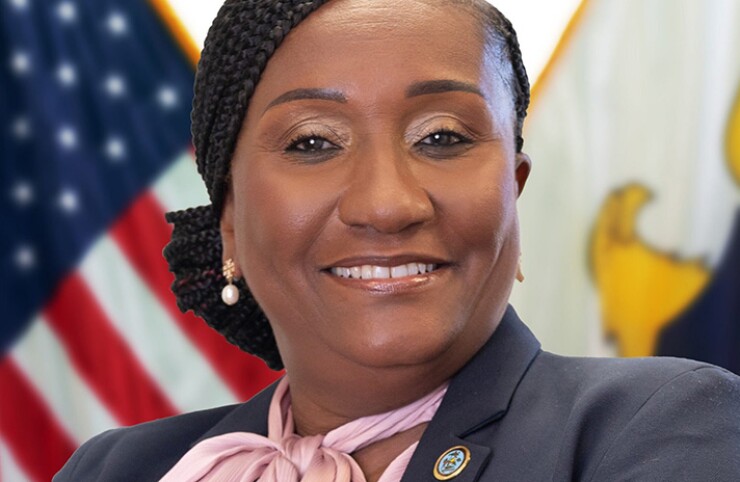The U.S. Virgin Islands government is concerned that more than $10 billion of a possible $15 billion in federal hurricane reconstruction aid may be in jeopardy, with possible impacts on the islands’ economy.
The islands’ government and Water and Power Authority have more than $2 billion in bonds outstanding.
Fitch Ratings rates the WAPA bonds CC. None of the ratings agencies rate the central government’s bonds. Moody’s Investors Service had an issuer rating of Caa3 on the government until March, when it withdrew the rating due to lack of information.
Since major hurricanes Irma and Maria hit the islands in 2017, the local government has repeatedly asked the federal government to waive a requirement it match 10% of the Federal Emergency Management Agency recovery aid.
FEMA has never waived a matching requirement and recently provided a statement to The Bond Buyer saying it would not do so.
The U.S.V.I. Office of Disaster Recovery expects the government’s requests for FEMA hurricane aid to grow to $8.4 billion. Earlier this month Gov. Albert Bryan was quoted saying the islands needs had grown to at least $15 billion, which would require at least $1.5 billion in matching funding.
FEMA has obligated $6.15 billion in Public Assistance Program hurricane aid and $178 million in its Hazard Mitigation Grant Program to the islands.
FEMA told The Bond Buyer that Public Assistance Program aid is subject to a cost share. “Typically for FEMA disaster assistance, this non-federal share is 25%; in extraordinary cases … FEMA can recommend to the president to reduce the non-federal share to 10%.” President Joe Biden agreed to this reduction for the Virgin Islands.
The local government could meet its share through several means, FEMA said, including by using U.S. Department Housing and Urban Development Community Development Block Grant Disaster Recovery funds. The territory expects a total of $1.07 billion of this grant money. It has set aside about $500 million of it to be used as matching funds for the FEMA aid.
While this could cover the matching requirement for $5 billion of FEMA aid, it remains to be seen where the local government would get the additional funds. This fiscal year’s approved general fund budget is about $920 million and it left some pressing needs unfunded.
If the territory’s hurricane recovery needs were $15 billion or more, without a waiver of the 10% matching requirement the local government would be left trying to find at least an additional $1 billion or accepting that many of its spending requirements would not be covered.
“The federal government’s refusal of the Virgin Islands’ request for the waiver will cause our projects to move forward at a much slower pace and in turn negatively impact the economy of the territory overall,” said U.S.V.I. Sen. Donna Frett-Gregory. “Our revenue base is extremely limited; therefore, the impact of the denial of the waiver could potentially further derail the economic health of the territory.”
Frett-Gregory said she supports FEMA waiving the match requirement since it “exceeds our annual fiscal year budget for the government of the Virgin Islands.” Frett-Gregory, who is chair of the Committee on Budget, Appropriations, and Finance, said she hoped a compromise could be reached with the federal government.
